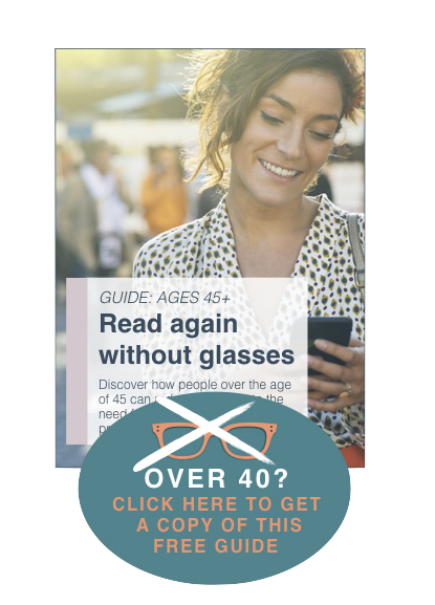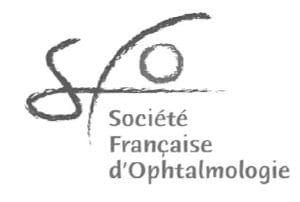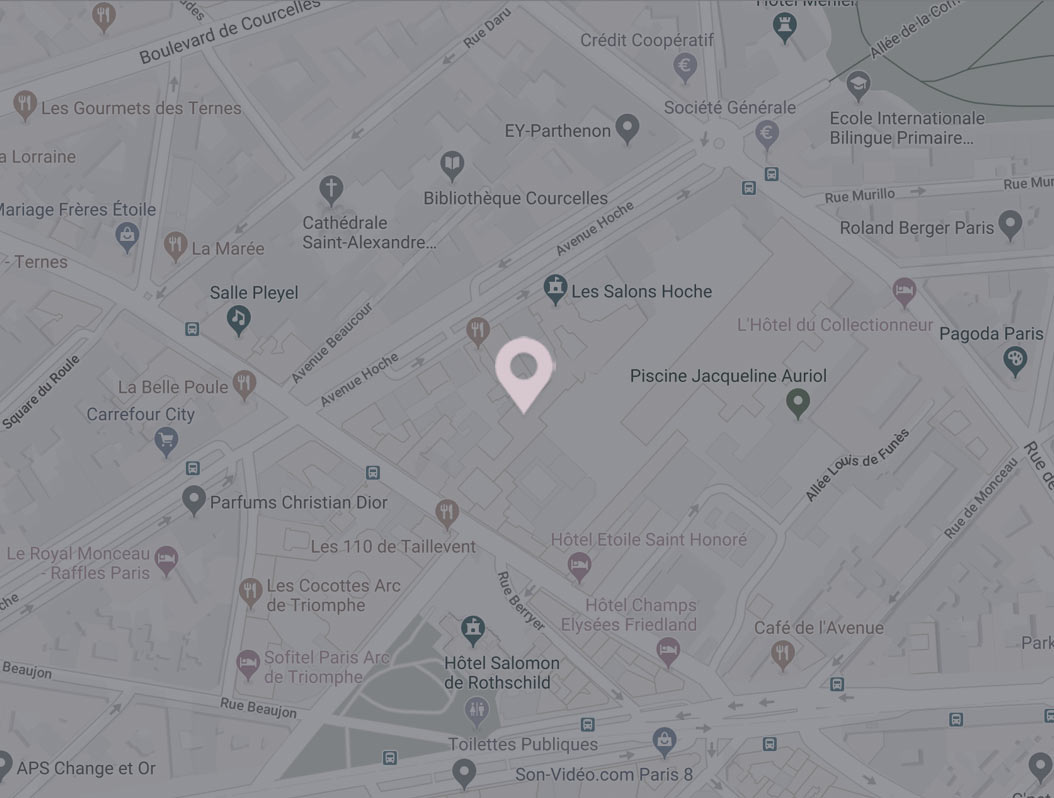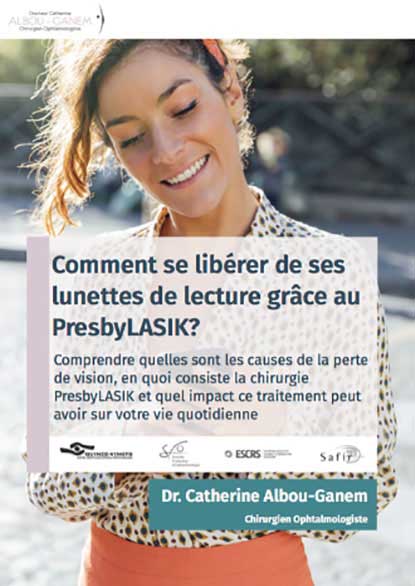What to expect when you’re over 40
Vision problems and solutions for this age group
Is this you?
People who are 40 and over who suffer from vision problems have likely done so for their whole lives. However, some problems surface as a result of the natural ageing process.
The types of eye problems common in people over 40 are:
Short-sightedness – difficulty seeing things that are far away
Long-sightedness – difficulty seeing things that are up close
Astigmatism – blurry and distorted vision
Most people use glasses and contact lenses to correct these vision problems and are happy to do so. Then, there are others who find glasses and contact lenses an inconvenience or even unsafe. For these people, eye surgeons offer numerous eye treatments to safely, effectively and permanently correct these common vision problems.
As we age, we also start to notice some changes to our near vision. We find we need to hold things further and further away to see them as clearly as we did. We find small print to be particularly hard to read, especially in dim lighting conditions. Those of us who’s hobbies or work include close up work may find it harder and harder to focus our eyes. This is what we call presbyopia, and it is a result of that natural ageing of the eye. The typical solution is reading glasses or varifocal glasses if we’ve also worn glasses or contact lenses before.
Some people, in addition to the problems we list above, also suffer from dry eyes. Dry eye is a common condition that results in itching, rubbing, scratching and sometimes burning of the eyes. People over 40 who suffer from dry eye might spend a lot of time in front of screens or expose themselves to environmental conditions (for example, air conditioning) that promotes dry eye. In some cases, our ageing eyes fail to produce the tears we need to keep them moist and comfortable.
If you’re fortunate to age into your 60s and 70s, you may start to notice that your vision gets cloudy, hazy and yellowish. You may find you appreciate the outdoors less, see colours less vividly, and even stop doing some of the things you used to enjoy. If this is you, you may be getting a cataract, which is the opacification of the lens inside the eye due to ageing.
How it feels
Eye problems can have effects on you that go beyond the physical symptoms we’ve listed above. For example, some people feel
- a lack of confidence in social situations
- a lack of freedom to swim, engage in sports
- a lack of convenience
- worried about the dangers of contact lens wear (which exceed the risks of laser eye surgery)
- burdened by the long-term costs of replacing glasses and contact lenses
- unattractive when they wear glasses
People choose vision correction for their own reasons. Fortunately, vision correction treatments not only can address these emotional concerns, but they can also be the most logical choice as well.
For those with ageing eyes, the need for reading glasses may signal the onset of middle age. This can be a troubling time because your body and mindset might feel as young as they did in your 30s, but your eyes no longer keep up. Now, you feel dependent on glasses, which may be a feeling you’ve never experienced. You may feel annoyed and frustrated at always needing to bring your reading glasses with you. Putting them on and off and on and off may feel like a daily chore. Losing them may be a constant annoyance. Being without them may feel debilitating.
Dry eyes may cause you no end of frustration. The burning and itching may be only a nuisance on some days. On other days it may feel intolerable, requiring you to stop what you’re doing and close your eyes to get any relief.
The onset of cataract can be a slow and almost imperceptible change. Suddenly you might find yourself unable to drive or feel that your life has slowly shrunken over time. Left untreated, your eyesight will become worse and worse, until finally, you will lose it entirely. The prospect may indeed be terrifying.
Daily life impacts
People over 40 live busy lives that can be encumbered by glasses, contact lenses and the adverse effects of ageing eyes. These daily hassles can affect you from morning to night.
For example, imagine:
- waking in the morning without needing to find your glasses or put in your contact lenses to see
- taking a shower or shaving your face and seeing everything you’re doing clearly
- exercising at the gym and seeing both your phone screen and the faces of those around you
- cycling to work and seeing clearly far ahead of you and seeing your cycling computer screen at the same time
- looking up from your screen at work to greet your co-workers and looking back down at your screen without a second thought
- going for an afternoon swim without worrying about seeing without your contact lenses
- opening the oven to take out the dinner you’ve cooked without your glasses fogging up
- falling asleep without worrying about taking out your contact lenses
All of these possibilities and many more await a life after glasses and contact lenses.
Fortunately, there’s a safe and reliable alternative to living with the hassles of ageing eyes
The principles of laser eye surgery go back 50 years. Eye surgeons have treated people with lasers for over 40 years.
Like most eye surgeons, we offer the traditional approaches to laser eye surgery, which we call:
Furthermore, we’re among the relatively few eye surgeons in Europe to offer SMILE, which is a more advanced and less invasive form of LASIK.
For people who can’t have laser vision correction, we offer ICL.
Dry eye can be a contraindication for some forms of vision correction. If you suffer from dry eye, we can offer the help you need.
Now we can treat near vision loss more safely than ever before
With the arrival of PresbyLASIK, we can now offer those over 40 a vision correction option that is much safer than more invasive procedures.
With PresbyLASIK, we combine the safety and convenience of LASIK with what we call ‘laser blended vision’. This revolutionary procedure can help you see clearly at both near and far distances while correcting any short-sightedness or astigmatism at the same time.
Cataract surgery, now available with the opportunity to become free of glasses
With modern cataract surgery, we can now not only remove your cataract, but we can also implant a multifocal lens to help you see clearly without the need for glasses or contact lenses.
This makes cataract surgery, in the right hands, a once-in-a-lifetime opportunity to become free of visual aids.
FEATURED VIDEO
Qu’est ce que la chirurgie cornéenne au laser de la presbytie – comment cela fonctionne-t-il?
TÉMOIGNAGES

“Le jour de l’intervention, je n’ai ressenti aucune gêne et aucune douleur. Après 2 h de repos j’ai pu reprendre mes activités tout à fait normalement. Deux jour après l’intervention il ne subsiste aucune gêne. Je tenais également à insister sur le fait que, contrairement aux idées reçues, ce n’est pas une intervention réservée aux personnes jeunes. J’ai 59 ans et c’est une totale réussite.”

“Le Docteur Albou-Ganem m’a opérée de la presbytie il y a un an, et je suis très heureuse du résultat, plus besoin de lunettes pour lire, même ma vue de loin est bonne. C’est un vrai soulagement pour moi, car j’ai hésité pendant un moment avant de sauter le pas, difficile de prendre une telle décision.”

“Après une opération rapide et sans douleur j’ai quasiment immédiatement remarqué une nette amélioration de ma vue de près et de loin. Au fil des semaines cela n’a fait que se confirmer et je n’ai jamais reporté mes lunettes depuis! Je ressens une telle liberté dans ma vie de tous les jours ainsi qu’une impression d’avoir rajeuni que je recommande à toute personne de le faire sans hésitation si cela leur est possible!”

“Docteur Catherine Albou-Ganem l’a immédiatement dissipée. Contact et confiance se sont installés immédiatement. Ses explications ont été claires, précises et je peux dire que le Jour J de l’opération, j’y suis allé les yeux fermés! Pour les rouvrir quelques heures plus tard avec la vue parfaite d’un homme de 30 ans!”

“L’opération a été un franc succès. J’ai maintenant 10/10e, sachant qu’auparavant j’avais une assez forte myopie (-5 et et -4,5) et un léger astigmatisme.”

“Vous m’avez opérée il y a maintenant plus de deux ans. A part pour conduire et regarder la télévision, et encore… je n’ai plus besoin de lunettes, moi qui n’ai jamais rien vu… Il m’a fallu plusieurs mois pour que ma vue s’adapte. Je tenais donc à vous remercier de cette opération qui a changé ma vie! Plus d’ulcères douloureux dus aux lentilles et la possibilité d’ouvrir les yeux sous l’eau et d’admirer les jolis poissons!”
We have replaced the images of real patients who provided these testimonials to protect their privacy.
AFFILIATIONS & MEMBERSHIPS
We are pleased to be associated with the following organisations
About the author
Doctor Catherine Albou-Ganem
Consultant Ophthalmic Surgeon
I am Catherine Albou-Ganem and I am an ophthalmic surgeon brought up in a family of ophthalmologists. I had a passion for ‘the eye’ and ‘the vision’ from my childhood. This was the subject of my first presentation at school.
Today, I share my refractive surgery activity between the hospital and the private sector.
I am proud to have contributed to the development of new laser refractive surgery techniques that can correct vision defects with accurate, effective and safe results when respecting the indications.
 Skip to content
Skip to content










